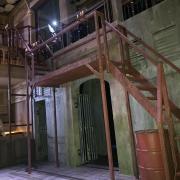
The twice yearly changing of clocks has become an unquestioned aspect of life for Brits, with Sunday 28th March seeing our clocks go forward by one hour. While many simply view this as one less hour in bed, the official descent into British Summer Time was first introduced by William Willet – a local builder from Petts Wood.
Though born in Surrey in 1856, William Willet spent most of his life in Chislehurst where he worked in his father’s building service.
After riding his horse in Petts Wood early one summer morning, the idea for daylight saving time occurred to Willet when noticing how most houses still had their blinds down.
Although he was not globally the first to recognise the possibility of adapting daylight hours, William Willet was the first to make it common practice in the UK, doing so through his publication of a pamphlet he named ‘The Waste of Daylight’.
In this he highlighted how his idea for advancing the clocks in spring and reversing them in autumn would increase daylight recreation time, make evenings lighter for longer and ultimately save money on lighting costs.
Willet campaigned for his idea to be adopted in the UK and slowly managed to gain support from several members of parliament, including a young Winston Churchill.
Despite this, attempts to get daylight saving into law were largely unsuccessful, with Willet’s idea being deemed as not a priority once the First World War broke out in 1914.
However, in May 1916 the bill to enforce daylight saving was at last introduced into UK law and was subsequently adopted in many other countries.
Sadly, William Willet died in 1915 so was unable to see the product of his life’s work but is remembered all throughout Petts Wood. The Daylight Inn pub and road ‘Willet Way’ are both named in his honour, while a sundial in the woods also recognises his work towards Daylight Saving Time.



























